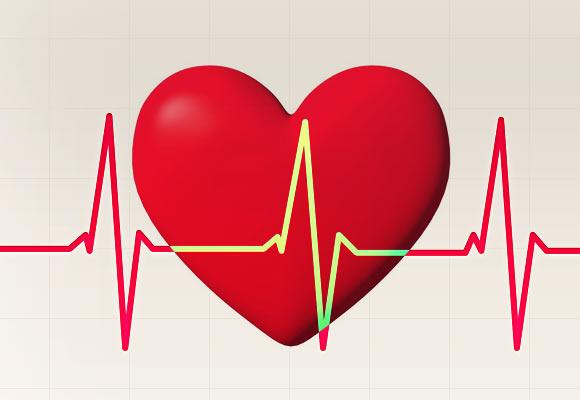Photographs: Anna Langova/Wikimedia Commons Shameem Akthar
Poor balance can be caused by certain health conditions. Read on to learn more.
How strong is your sense of balance?
You’d be surprised how much we take this for granted. Or mistakenly assume that as long as we don’t fall down while walking, we have the perfect sense of balance.
As we age, the sense of balance which is categorised under kinesthetic intelligence gets even more depleted.
Why is it important to discuss this?
Because balance is not just about standing steady; it is linked to memory power, keenness to learn new things, and cognitive skills, and impulse control, to name a few.
That is because the sense of where you are in space, also called proprioception, a sort of kinesthetic intelligence, is a function of the cerebellum, a primitive part of our nervous system.
In fact, neuroscientists are still making new discoveries about this part of our brain.
So, we should take the ability to stand on one leg more seriously, suggests Shameem Akthar, yogacharya trained with the International Sivananda Yoga Vedanta Centre.
Click on NEXT for the 5 reasons why your sense of balance is poor...
Losing your sense of balance? Here's why
Photographs: Rediff Archives
Circulation problems
It is not just about the legs. When you have a messed up circulatory system, (including high or low blood pressure, cholesterol, blood sugar yo-yos, including diabetes), you may feel dizzy simply because the blood flow to the brain is affected.
For those who do not make the connection, this sense of loss of control can be very upsetting and disorienting.
It can even be life-threatening if you are driving.
So it’s essential to make the connection and have a thorough check-up to track it to its source.
Most of the above problems require not just medical attention but an overhaul in lifestyle.
Click on NEXT to continue reading...
Losing your sense of balance? Here's why
Photographs: Rediff Archives
Panic attacks
The link between a loss of balance and panic attacks is often overlooked.
Recent research has shown strong evidence that those who are super-sensitive and are anxiety prone in closed or crowded spaces are likely to feel dizzy without any provocation.
It is a primitive and futile attempt (somewhat similar to an animal playing dead when attacked by a predator) to escape what the sufferer feels or interprets as an extremely dangerous situation.
The response is primitive, but in modern day circumstances, it can be disturbing and disorienting.
Since losing one’s balance has so many causes, the connection with a panic attack is often missed.
This means the problem never really gets sorted.
But if you make the connection, you may be able to get rid of the fear (through hypnotherapy and other mind-body healing practices).
It would be better than popping pills, hoping it will go away!
Click on NEXT to continue reading...
Losing your sense of balance? Here's why
Photographs: Rediff Archives
Allergies
Allergies are essentially the body’s reaction to otherwise harmless objects with panic, setting off a protective reaction in the body which ends up becoming counterproductive.
If you take the earlier connection, you can see that the sense of balance can be chronic in a super sensitive person and that it is likely that a person who suffers from agoraphobia is also likely to be prone to allergies.
Some allergies cause extreme reactions in the inner ear. Ear infection can also make you feel woolly and wobbly.
Making the connection between an allergic attack and your lack of balance could help prevent aggravation of both.
Click on NEXT to continue reading...
Losing your sense of balance? Here's why
Photographs: Rediff Archives
Anaemia
Low iron levels in the blood could cause loss of balance. This is because iron is needed for a robust heart.
Less iron means the heart has to work harder to pump blood through the network of blood vessels (which, if they were laid out end to end, would equal the earth’s circumference!).
The heart protests at this extra work by sending out many signals, one of which is dizziness.
If left undiagnosed and unattended it can cause serious and chronic heart problems.
A simple blood test can establish your iron levels and a shift in diet, to include more iron-rich foods (whole grains, dark green vegetables) can be an easy route to a steady walk.
Click on NEXT to continue reading...
Losing your sense of balance? Here's why
Photographs: Abhisek Sarda/Wikimedia Creative Commons
Mental health and balance
Language ability, spatial skills (negotiating the car in a tricky place, or reading a map, for instance), impulse control, multi-tasking, memory skills are all in some way linked to your sense of balance.
This is because your sense of balance is a function of the cerebellum which is involved with these executive functions as well.
This explains why yoga treats a lot of psychological issues – learning difficulties, anger control, anxiety management – through balancing poses.
It could be time to rework our physical activity and incorporate those that actually challenge our balance skills as well.
Is there a solution?
One way of tackling most of the problems listed here is to – instead of running off from all body postures that challenge your balance – focus on acclimatising your body to the challenge through regular practice. To face up to what causes the fear, so to speak.
Some tricks would be to learn dances that challenge your balance (contemporary dance), practice arm balancers, standing balancers and inversions in yoga, use balance board or a gym ball to further up the ante.







Comment
article